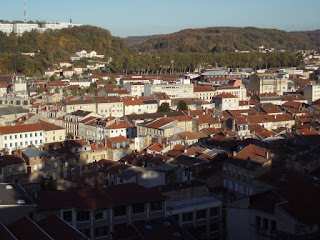A first cousin of his mother, Carolyn was a teacher and librarian at the Mankato Normal School, which today is a branch of the Minnesota State University. She and her sister, Alice, lived together for many years and were an integral part the Robbins-Willard clan. Unlike many of their contemporaries, they traveled widely at home and overseas, and that fact added a touch of the exotic for their younger cousins. Alice became Grant's step-mother in the 1940s when she married his widowed dad.
Convois Autos.,
S.S.U. 647,
Par B.C.M.,
France.
11/18/18
Dear Family:
Haven’t written you since leaving Paris simply because we have been most occupied. Spent two miserable days in finding the section and when I did find them they were in the midst of a grand and glorious advance in an interesting sector with every car and every man working night and day. We have been up here now ten days and are still busy though our division is slowly being relieved. We hope to be out of this in a few more days. Too much excitement in one bunch is hard on a man’s constitution. It has been raining now for two weeks, today being the first time the sun has appeared in two long weeks. But still our boys progress. We’ve got friend Boche in a bad hole and he is pulling out as best he can.
 |
| Carolyn M. Robbins (1864-1926) |
Am well and so is Hap though at present we are both coughing our heads off from wet feet. The weather is bad and we are soaked to the skin a good share of the time.
But cheer up! We’ll soon be out of here – long before this letter reaches you.
Had a piece of shell or a rock clip the first knuckles on my left hand the other night. Just removed the skin – nothing serious. Our section’s casualties have been light during this action. Only two gassed and one wounded. Fraser had a piece tear across his neck but only cut the skin. He was very fortunate as the shell struck less than 20 feet from him and wrecked his car. Two other cars have been destroyed and one patient killed while two of our boys were loading him in the car. Wow, Mother, I hate to think how fortunate we have been. My fingers are crossed as I write this.
God bless you all and may this thing be ended soon.
Much love,
Grant.













